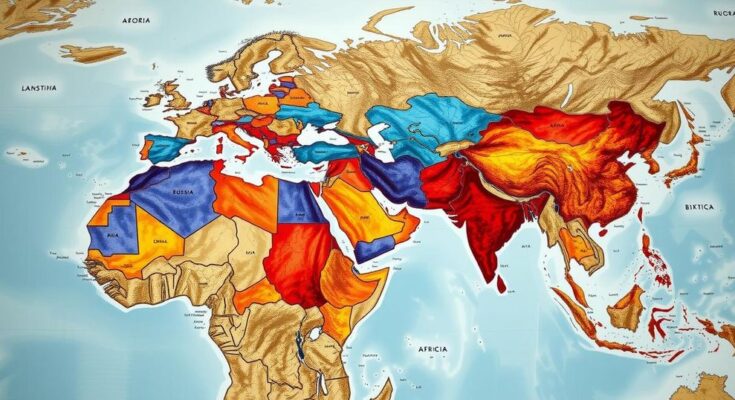Russia’s military operations in Africa, particularly through the Wagner Group, face significant challenges, resulting in increased violence and strained relations with local governments. Although Moscow seeks to promote itself as a great power in Africa, its military and economic influence is waning amidst internal turmoil and the emerging pivot of African countries towards other partnerships such as Turkey. Overall, Russia’s propaganda efforts portray a misleading image of strength in Africa, which is contradicted by the realities of its overstretched military and limited economic leverage.
The extent of Russian influence in Africa has become significantly overstated, especially in light of the ongoing challenges faced by Moscow’s military presence there. The tragic scene of fallen mercenaries in Mali, as depicted in a graphic video footage that surfaced recently, reveals the dire situation on the ground. While the Kremlin promotes an image of strength and liberation, the actual scenario is one of opportunism, as Russia trades military assistance for predatory economic deals that largely benefit its war efforts in Ukraine.
Moscow’s alliances in African nations such as Mali, Burkina Faso, Niger, and the Central African Republic have resulted in deteriorating conditions for civilians, with rising violence and unrest. Originally, Russia’s strategy included supporting military coups and anti-Western sentiment, empowering regimes that appeared willing to engage with them despite the upheaval and instability this has brought.
The Wagner Group, headed by Yevgeny Prigozhin, has notably faced setbacks, including a devastating loss in northern Mali where Russian forces suffered significant casualties. Following the turbulence from Prigozhin’s failed coup, the Malian leadership is now pursuing a move away from reliance on Russian military support, with Turkey emerging as a preferred partner.
Reports suggest that in addition to Mali and Burkina Faso, Russia’s presence elsewhere in Africa remains minuscule, reflected by a lack of personnel effectively operating in critical nations such as Niger. Furthermore, Russia’s economic contributions fall short compared to those offered by Western countries, particularly in humanitarian efforts and developmental aid.
Moscow’s capability to maintain its military and economic foothold on the continent is hampered by its ongoing conflicts elsewhere and a shrinking pool of resources. As the Kremlin grapples with internal weaknesses and overextension, its carefully constructed narratives of being an emerging great power in Africa are eroding, leaving behind a legacy built on intimidation and propaganda rather than genuine influence.
Russia’s involvement in Africa largely revolves around building partnerships with authoritarian regimes while promoting an image of anti-colonial solidarity. Its military operations, often characterized by the use of mercenaries rather than formal forces, raise significant ethical concerns and lead to tragic outcomes for local populations. The Kremlin’s narrative hinges on historical Soviet contributions to liberation movements, but contemporary reality depicts a far less altruistic agenda, where regime support comes at the cost of increased violence and instability for civilians.
In conclusion, although Russia has attempted to expand its influence and portray itself as a great power in Africa, the realities on the ground reveal increasing challenges and setbacks. Its military presence is overstretched, its economic contributions are relatively insignificant, and the local populations are suffering as a result of predatory practices. The combination of internal turmoil within Russia and a pivot toward more strategic partners, particularly Turkey, suggests a weakened position that belies the Kremlin’s claims of robust power on the continent.
Original Source: foreignpolicy.com




